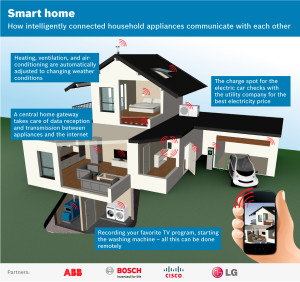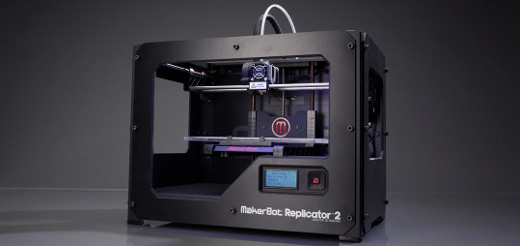“Smart Home” consortium working for open standard
The “smart home” industry is booming these days, attracting interest and investment from companies with their feet in every corner of the tech sector. Healthy as that accelerating competition is for innovation, however, it raises a corollary concern over the proliferation of proprietary systems that can’t communicate. Even as more and more groups are trumpeting the ability to get their televisions talking to their thermostats and refrigerators, there’s been little assurance of the same level of connected experience for a consumer who purchases more than one brand of home appliance, a fragmentation that creates a sea of automated islands that complicates the potential for the much-touted broader connectivity to come.
As nascent industry (and consumer) interest in setting up the groundwork for the “Internet of Things” has demonstrated, this kind of larger-scale connectivity beyond the home requires planning and foresight from an early stage that reaches beyond the remit of a single corporation, market leader or otherwise.
This week, signs of a similar desire to begin working collectively on the basic protocols more explicitly consumer-oriented devices might use to communicate coalesced as ABB, Bosch, Cisco, and LG signed a memorandum of understanding to precisely that effect. According to their joint press release, these companies plan to form a consortium tasked with “develop[ing] an open architecture for data exchange” that “allow[s] appliances and devices made by different manufacturers to be part of home automation, security, healthcare, and entertainment services.”

This open platform, then, “is intended to make the standard available to all manufacturers, software developers, and service providers. It is intended to unite diverse services in areas such as energy management, security technology, and convenience and consumer electronics. This will enable new business models: software developers, for example, will be able to develop diverse apps for these areas. And in the future, end-users wanting to have automated control for their electronic appliances in residential buildings will no longer have to choose between different technologies.”
The groundwork for the move toward automating the home has been visible in each of these firms for some time. LG, for example, acquired the webOS operating system – and some extensive associated R&D capabilities – from HP in February of this year specifically to bolster their “next-generation Smart TV technology” as well as begin extending automation and connectivity further throughout their product line.
Making the shift to a cooperative effort to lay out what amounts to an industry-wide common denominator, however, is a new approach for these companies and the for the “smart home” arena more broadly; as Cisco-representative Jesper Anderson put it, “This consortium represents an opportunity to bring together a variety of business ecosystem partners, all working together to help make the Internet of Things for the home a reality.”
[ image courtesy of Bosch ]



